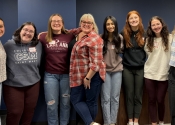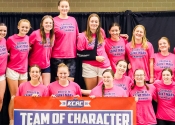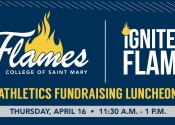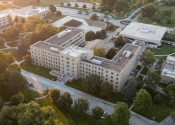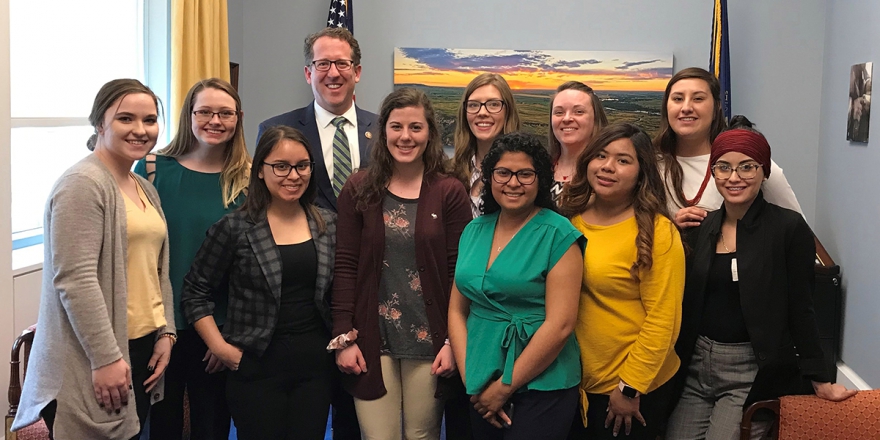
CSM students put advocacy into action in Washington D.C.
OMAHA, NEB. – As many of their fellow students headed home for spring break, 10 College of Saint Mary (CSM) students and their instructor instead headed to Washington, D.C., to spend the week on an advocacy immersion trip. The trip, which lasted from March 10th-14th, was the culmination of an immigration course the students took this semester.
The goal of the trip was for students to learn the various components of the contemporary immigration system and advocate for fair immigration policy. During their week in D.C., students learned about the border crisis from members of the Sisters of Mercy Institute Justice Team, attended several panel discussions relating to current immigration challenges, met with the Department of Homeland Security and lobbied for humane immigration policy at the offices of Nebraska senators and representatives. In their free time, the students also had the opportunity to visit the Smithsonian Museums, tour the Capitol and attend a discussion of the opera La Paloma at the Wall.
“It’s exciting to demystify the political process for students and help them conquer any fear of politics they might have,” said Dr. Kristin Mattson, professor of political science at CSM, who taught the course. “Student engagement is always important, and the students learned that they can be involved with the people behind the policy-making.”
While some of the students went into the trip with personal experiences with the immigration system, others had little previous exposure to it. All of the students, though, expanded their knowledge of the complex issues surrounding immigration from their experiences in the nation’s capital.
“Immigration is a very important issue,” said Emily Eacker ‘22, occupational therapy major. “I wanted to learn more about this subject so that I could be better educated and informed.” For Eacker, hearing from activist Jean Stokan, who has spent time at the border, stood out the most. “[Jean] spoke with such compassion and enthusiasm to vie for more humane policies and conditions for people who are being detained. I was touched by how much of her own time, energy and resources she put into her work for others.”
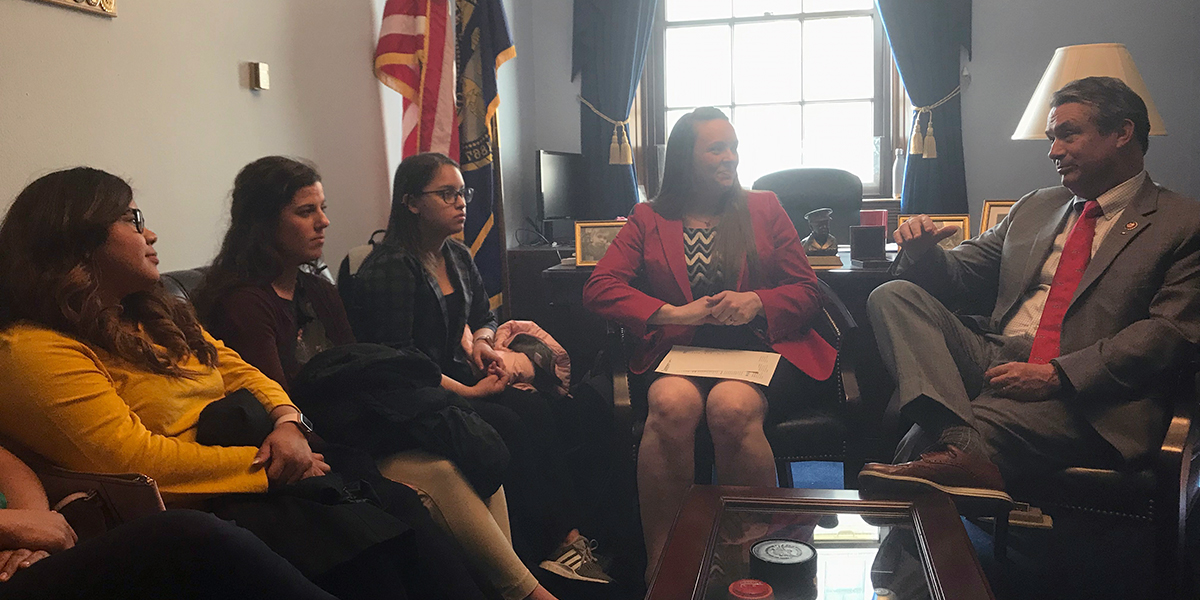
Karissa Nichols ‘22, who also studies occupational therapy, had more personal motivation for deciding to take the class and participate in the trip. “Many of my peers and family members have been affected by the immigration system,” said Nichols, whose hometown was the site of a raid from the U.S. Immigration and Customs Enforcement (ICE) agency earlier this year. Nichols felt that personally speaking with Nebraska’s congressmen was the most beneficial. “Seeing these politicians face to face and having a real conversation with them regarding our issues with today’s immigration system was great.”
Tyler Sumpter ‘20 was also able to have a meaningful meeting with a congressman. A junior secondary education major, Sumpter grew up on a reservation and is concerned about all the sexual assault and domestic violence affecting Native American women. Wanting to speak with someone who could personally relate, Tyler reached out to U.S. Representative Deb Haaland, one of two Native American female representatives, and arranged to meet with her. “Going to Washington, D.C., was perfect for me to talk with her about these problems women are facing on my reservation,” said Sumpter. “We only met for 15 minutes, but those 15 minutes truly meant a lot.”
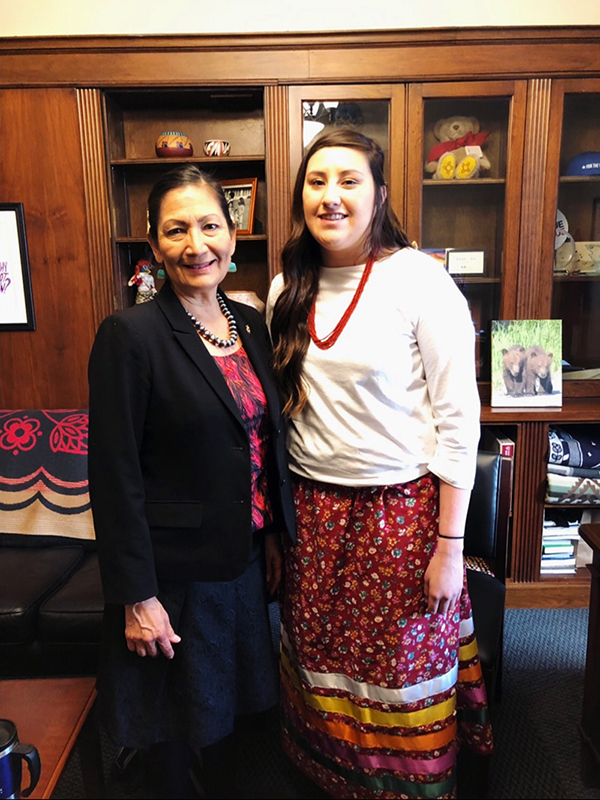
The immersion trip to D.C. serves as the final portion of the U.S. immigration course. In the class, students learn about the history and politics of immigration today, explore the economic and political factors that shape the modern immigration system and engage knowledgeably and respectfully in key immigration debates. Two other course objectives are understanding the worth and dignity of all persons and broadening global and cultural competence—all of which are part of the mission of CSM.
Clearly, these goals were accomplished for this group of students who participated in the class, many of whom are eager to apply the lessons they learned back home in Nebraska.
“Lobbying is not as intimidating as you might think,” said April Francisco Klusaw ‘20, who is studying science education. “Don’t be afraid to tell your personal story in relation to a topic. [Immigration] is a huge, super complex issue, and I would like to spread [my] knowledge to hopefully broaden people’s perspectives about it.”
Fellow student Nichols agreed. “I learned that I have more confidence and power than I thought before. I have the ability to make a difference and to express my opinion. I am going to continue speaking up when I feel something is wrong, and this trip gave me the confidence to do so.”






